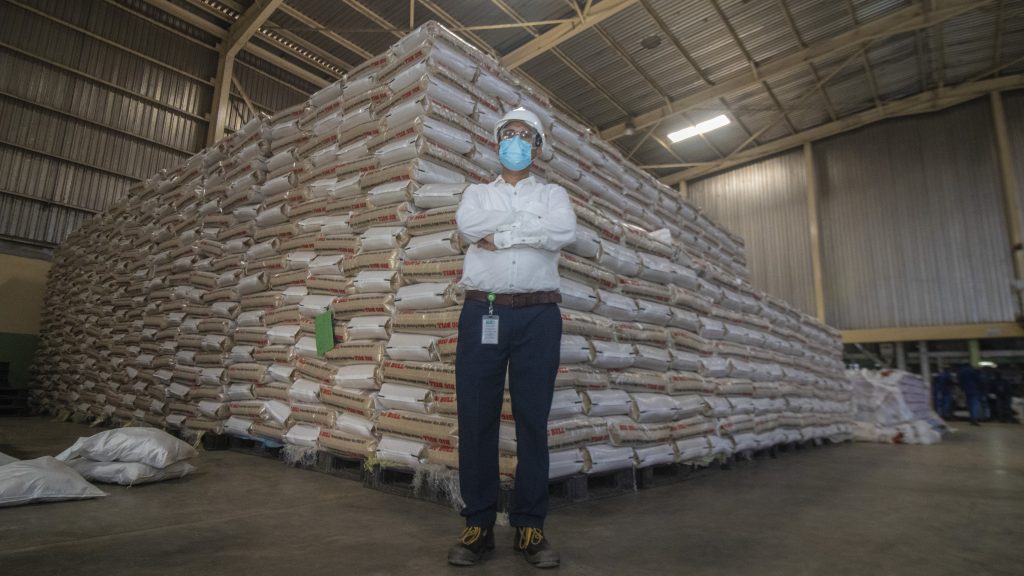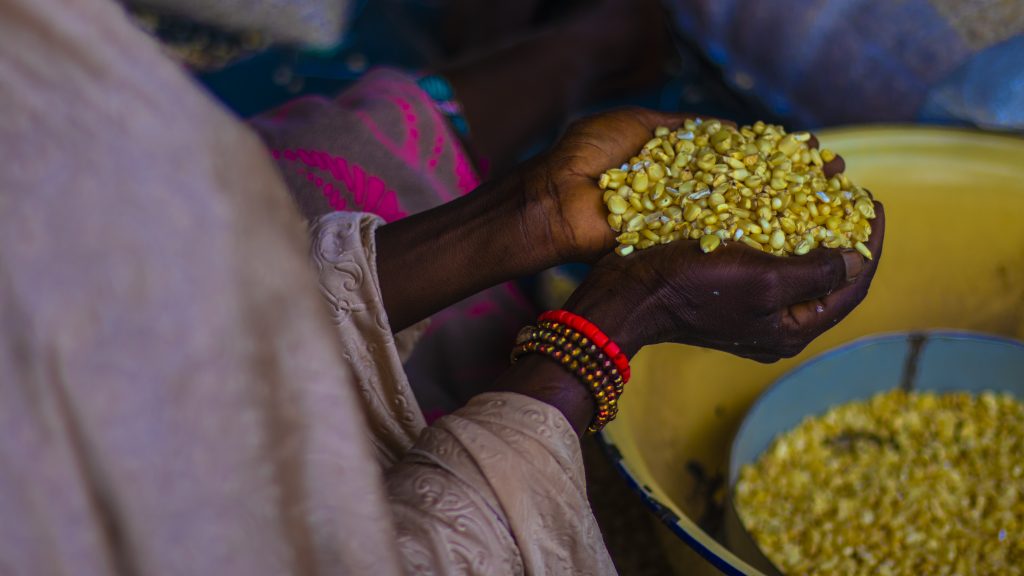By Michael Adaji, Communication Specialist
Utilizing a combined market-driven approach and blended finance solutions to tackle a variety of locally unique challenges, the USAID Trade Hub (Trade Hub) has been positively impacting the region’s economic clime.

A notable example of this comes from the collaboration with WACOT Rice Ltd. (WRL) in Kebbi State, Nigeria. Confronted with severe climatic challenges, including rising temperatures and erratic rainfall, Kebbi State farmers faced economic hardships. In response, the Trade Hub awarded a $1.48 million co-investment grant to WRL for its Argungu Rice Outgrower Expansion Project (AOEP). Launched in January 2021 and augmented by $6.49 million in private investments, the project aimed to integrate over 5,143 rice farmers into a sustainable agriculture ecosystem. Remarkably, by implementing good agricultural practice (GAP) trainings, providing farmers with premium agri-inputs, and carrying out behavior change campaigns that empowered smallholder farmers to adopt regenerative agricultural techniques, in just three short years, the collaboration surpassed expectations by creating 6,003 jobs, generating $19.5 million in sales revenue, and increasing farmers’ yields to 4.34 metric tons (MT).
The partnership with Remif Rems Nigeria Ltd. (Remif Rems), a woman-led, agro-focused firm, is another impactful partnership. In March 2021, in response to threats from the Ukraine-Russia war and global inflation, the Trade Hub awarded a $499,000 co-investment grant to Remif Rems to support rice farmers and enhance food security. However, in addition to the project objectives of supporting 3,000 rice farmers in Ebonyi and Cross River States to produce 30,000 MT of clean paddy rice on 3,000 hectares (ha) of land, the partnership, using advocacy as a tool, also dismantled cultural barriers denying women access to land, leading to a historic shift in communities like Abachor, Cross River State, where women gained access to cultivate and harvest crops from their own farms for the first time.
Empowering 4,276 farmers, including 1,867 women and 2,210 youth, the partnership exceeded revenue targets, reaching $16.58 million. Also, leveraging agro-research and innovation, Remif Rems pioneered the development of organic fertilizer from food waste,rice husks, black soldier fly maggots, and poultry waste. This eco-friendly fertilizer promises higher profits for farmers, contributing to sustainable agriculture in an economy grappling with inflation.

Addressing the economic impact of COVID-19 on agro-livelihoods, the Trade Hub awarded an $834,000 strategic grant to Nalmaco Nigeria Ltd. (Nalmaco). The objective was to expand the maize and soybean supply by engaging 2,000 farmers to produce 20,000 MT of maize and 15,000 MT of soybeans. Additionally, this initiative included plans to improve infrastructure, with a modern warehouse and maize processing plant. Utilizing the grant, Nalmaco initiated an improved approach for its 2022 outgrower scheme by hiring more agricultural extension agents to monitor and mentor farmers on pre- and post-harvest good agronomic practices.

